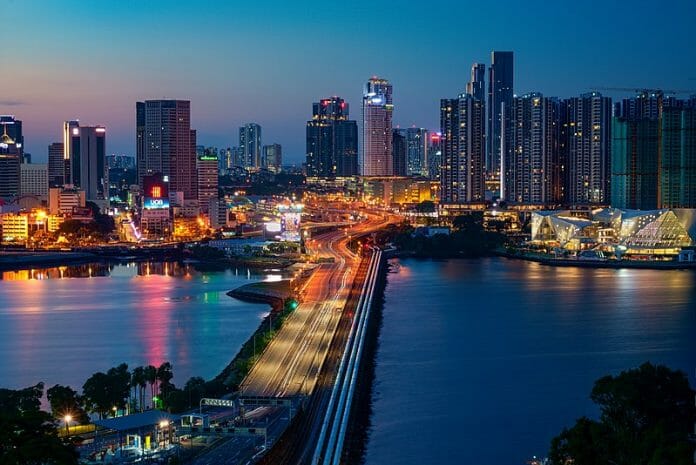Malaysia and Singapore signed a Memorandum of Understanding (MoU) today in Johor Bahru to work on Johor-Singapore Special Economic Zone (JS-SEZ) to strengthen economic connectivity between Johor and Singapore.
In a joint statement by Malaysia’s Economy Ministry (MOE) and Singapore’s Trade and Industry Ministry (MTI), the ministries said the signing of the MoU comes just two month after the 10th Singapore-Malaysia Leaders’ Retreat in October 2023, which reaffirms the longstanding ties and joint commitment by both countries to strengthen economic cooperation.
“Both sides also agreed to work towards a full-fledged agreement on the JS-SEZ and provide an update to the 11th Malaysia-Singapore
Leaders’ Retreat,” the ministries said today (Jan 11).
The MoU was signed by MOE Minister Rafizi Ramli and MTI Minister Gan Kim Yong, witnessed by prime ministers of both countries, Malaysia’s Datuk Seri Anwar Ibrahim and Singapore’s Lee Hsien Loong.
“Under the MoU, Malaysia and Singapore will work towards enhancing cross-border flows of goods and people as well as strengthen the business ecosystem within JS-SEZ to support investments
“The JS-SEZ rides on the strong growth of Johor and significant investments in the region by Singapore,” the ministries said.
According to the statement, Johor recorded RM70.6 billion worth of investments in 2022 alone, across various sectors including electrical and electronics, medical equipment, food manufacturing and data centres.
“Singapore was Johor’s second-largest foreign investor from January to June 2022, and contributed to around 70 per cent of Johor’s total foreign direct investment in the manufacturing sector.”
Commenting on the bilateral cooperation, Rafizi said JS-SEZ presents an unprecedented opportunity to enhance the cross-border flow of goods and people, bolster the business ecosystem, and elevate the economic attractiveness of both Johor and Singapore.
“I have full confidence that this initiative will herald the commencement of a transformative chapter in our bilateral economic relations, fostering unparalleled connectivity and prosperity for both our great nations,” said the Malaysian minister.
Meanwhile, Singapore’s Gan said JS-SEZ underscores what Singapore and Malaysia can achieve when our governments and business communities work closely together.
“It will serve as a bridge for both sides to tap on each other’s complementary strengths and seize opportunities to grow together. I look
forward to the JS-SEZ Agreement and the benefits for our businesses and people,” he said.
Apart from the agreement, the ministries said Malaysia and Singapore will also explore work on several initiatives that will build towards the JS-SEZ.
Among them are one-stop business and investment service centre in Johor to facilitate the application process for various approvals and
licenses necessary for Singapore businesses to set up in Johor as well as adoption and implementation of a passport-free QR code clearance system on both sides to facilitate faster clearance of people at land checkpoints.
“(Besides that, both countries will also explore) the adoption of digitised processes for cargo clearance at the land checkpoints; co-organising an investors forum to gather feedback from Singapore and Malaysia businesses on the JS-SEZ and facilitating Malaysia-Singapore renewable energy cooperation in JS-SEZ,” the statement said.
The ministries added other initiatives include curating training and work-based learning initiatives to address talent and skills gaps for relevant industries in JS-SEZ as well as developing joint promotion for JS-SEZ.
“These early initiatives demonstrate the collaborative spirit between both sides and mutual interest in the JS-SEZ to drive economic growth,” the ministries said.
Malaysia and Singapore are each other’s second largest trading partners, with bilateral trade growing 18.9% year-on-year (YoY) to S$153 billion (approximately RM543 billion).
Singapore was also Malaysia’s top source of foreign direct investment (FDI), contributing 20.5% to Malaysia’s total foreign direct investment (FDI) in 2022.









